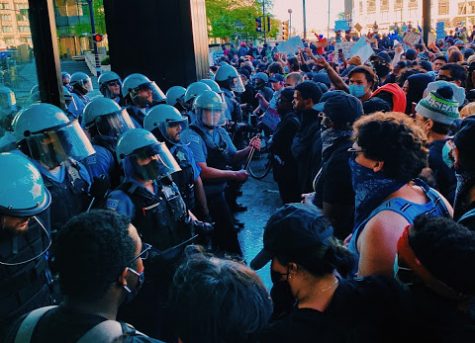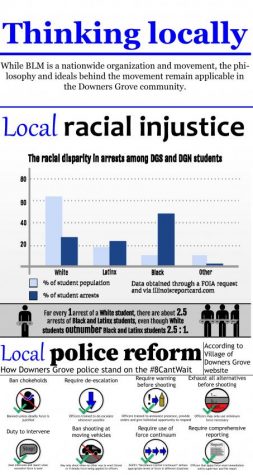Defund the police: Meaning and implications
October 23, 2020
With the spark of this summer’s protest in honor of George Floyd and the entirety of the Black Lives Matter movement, many Americans were galvanised to think about police reform and ideas such as defunding the police, which has been previously thought of as a radical idea.
Though the leftist term “defunding the police” insinuates major funding cuts to police unions around America, that is not actually what it entails. “Defunding the police” means relocating funds away from the police department to other government programs.
Defunding does not equal abolishment. Abolishing the police is a completely different idea; abolishing the police means not necessarily dismantling all law enforcement but tearing down an old system and rebuilding it. Cities like Seattle, Wash. have cut their 17 million dollar police budgets by three million dollars.
Another difference between abolishing the police and defunding the police is defunding the police focuses on tax accountability, advocates for a market-driven approach to taxpayer money and has apparent benefits that reduce police violence.

Statistics show that most emergency calls are nonviolent threats. This does not mean that these situations don’t have the potential to become violent, instead it means that the police have a higher potential of escalating the likelihood of violence occurring. The equipped skillset of a police officer is commonly out of place for the type of calls that happen in mundane life.
Police training focuses on the worst-case scenario rather than situations that could be handled with a simple conversation.
Senior Abbey Qualtier advocates for defunding the police, and “believes that shifting the money from police departments to social services could improve things like mental health, addiction and homelessness.” An approach like this pushes for the decriminalization and de-stigmatization of people who suffer from mental illnesses and addiction.
Junior Hailey Llyod, another advocate for Defunding the Police, thinks that “pushing stricter policies in police departments would help lower the yearly killings by police.” Such policies would include increasing the amount of cops at a crime scene to ensure rationality and even creating new branches of the police to ensure proper evaluation of crime.
The day-to-day shift of an average police officer can be anything from dealing with potholes to dealing with instances such as George Floyd and Breonna Taylor. Police officers are also increasingly asked to complete paperwork and forms to document their reports; these are valuable because they serve as documentation of an incident and may be important to the case later. The empty report in the killing of Breonna Taylor listing her injuries as “none” highlights the importance of documentation.
In retrospect, it is apparent that metropolises across the country are making steady changes in regards to defunding the police. While the word “defunding” might be deemed radical, it surely gets the media’s attention and is creating change.
